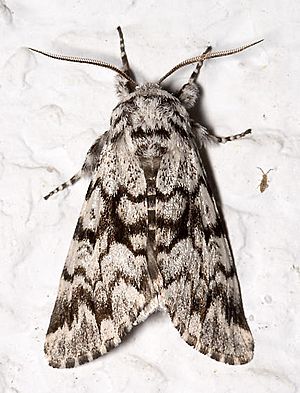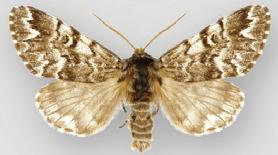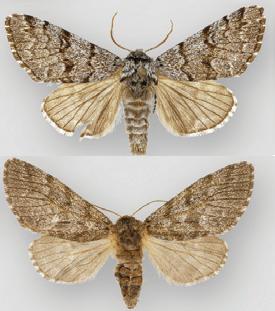Black zigzag facts for kids
Quick facts for kids Black zigzag |
|
|---|---|
 |
|
| Scientific classification | |
| Kingdom: | |
| Phylum: | |
| Class: | |
| Order: | |
| Family: | |
| Genus: | |
| Species: |
P. acronyctoides
|
| Binomial name | |
| Panthea acronyctoides (Walker, 1861)
|
|
| Synonyms | |
|
|
The black zigzag or tufted spruce caterpillar is a type of moth. Its scientific name is Panthea acronyctoides. This moth belongs to a family called Noctuidae. A scientist named Francis Walker first described it in 1861.
You can find this moth in many parts of North America. It lives from Newfoundland to British Columbia. It also lives in some northern states, going south to Colorado in the west. In the east, it can be found as far south as New England and Kentucky.
About the Black Zigzag Moth
The black zigzag moth is not very big. Its wingspan (the distance from one wingtip to the other) is about 30 to 35 millimeters. That's about the length of a small paperclip!
These moths usually fly during the warmer months. You can see them from May to August. The exact time they fly depends on where they live.
What They Eat
The young moths, called larvae or caterpillars, like to eat certain trees. They feed on:
- Balsam fir
- Eastern hemlock
- Eastern larch
- Pines
- Spruces
Different Kinds of Black Zigzag Moths
Scientists have found two main types, or subspecies, of the black zigzag moth. These are slightly different versions of the same species.
- Panthea acronyctoides acronyctoides (Walker, 1861)
- Panthea acronyctoides nigra (Anweiler, 2009)
 | Claudette Colvin |
 | Myrlie Evers-Williams |
 | Alberta Odell Jones |



